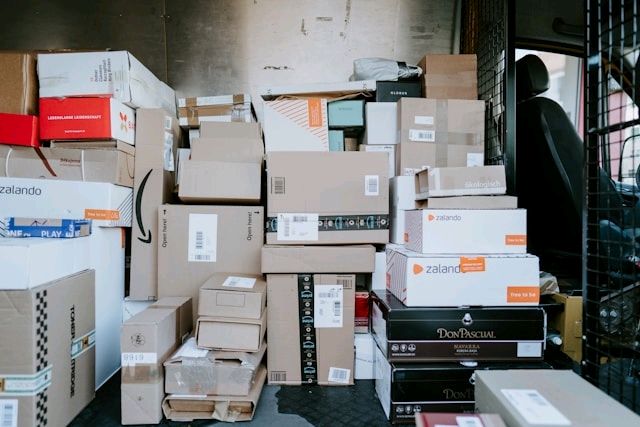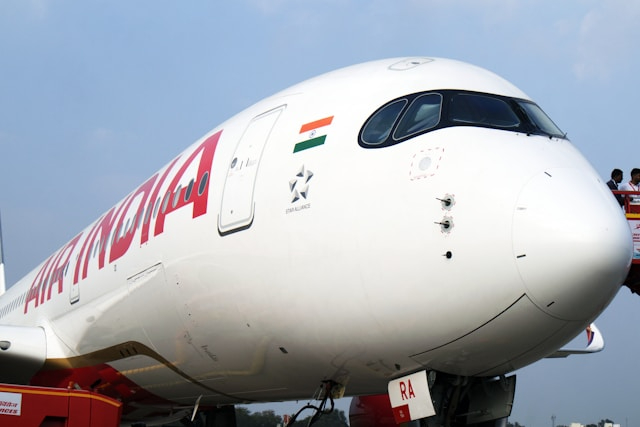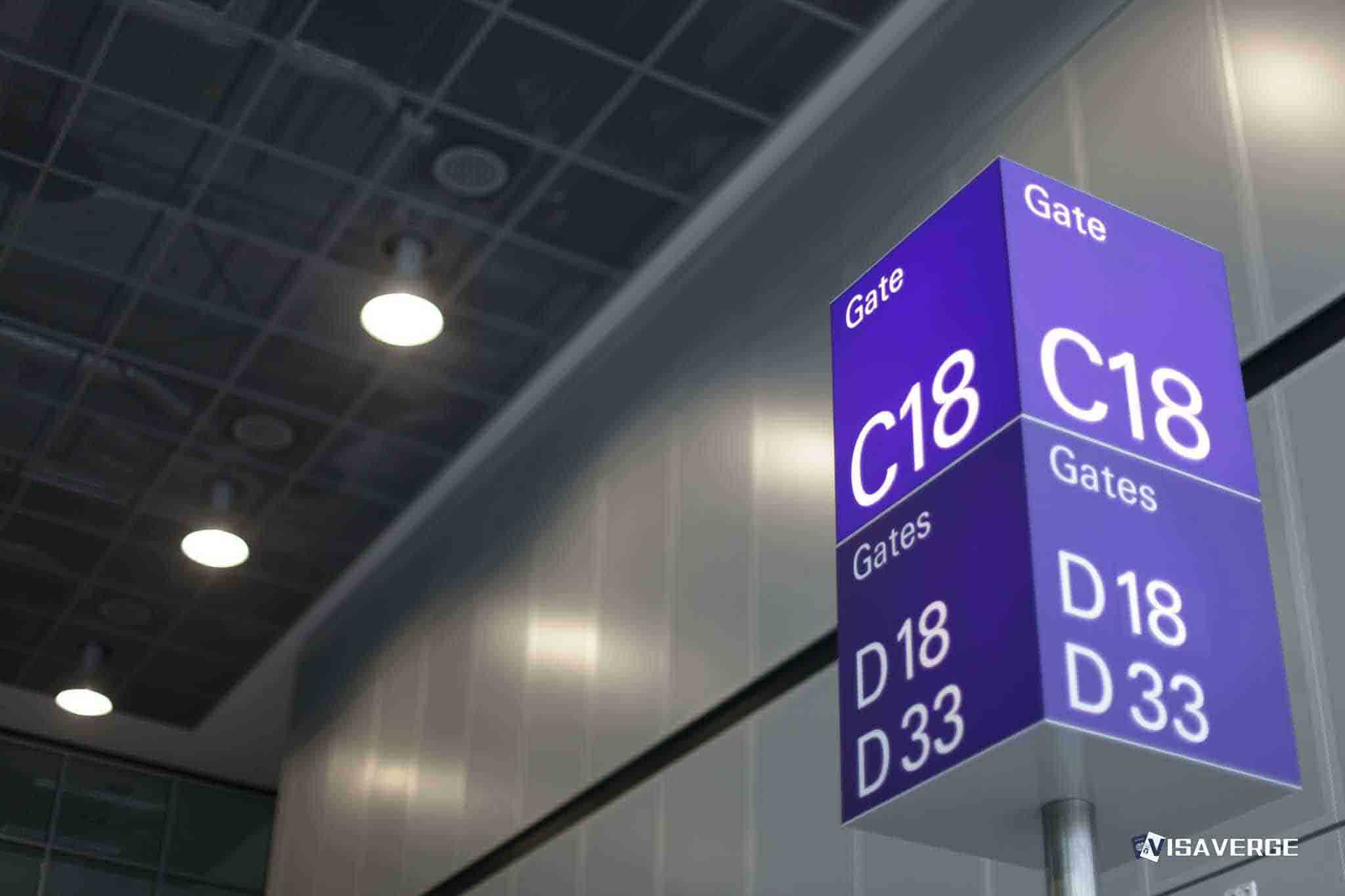(INDIA) India Post has temporarily suspended most postal services to the United States 🇺🇸 effective August 25, 2025, citing new U.S. customs rules that take effect later this month and require duty collection on almost all inbound mail. Under Executive Order No. 14324, which becomes effective August 29, 2025, the U.S. has withdrawn the previous duty-free de minimis exemption of USD 800 for postal imports.
As a direct result, only two categories of mail to the United States are still moving from India: letters and documents and gift items valued up to USD 100. All other postal items—especially parcels and merchandise above USD 100—are suspended until India Post can comply with the duty collection demands of U.S. Customs and Border Protection (CBP).

The Department of Posts and the Ministry of Communications confirmed the suspension and the narrow exemptions in official statements. India Post explained that it does not currently have a system or agreement with any agency to collect and remit U.S. customs duties at the point of posting, as required by the new rules. Air carriers flying to the United States have also declined to accept U.S.-bound postal consignments from India after August 25, given the uncertainty around who will collect duties and how those funds will be transferred to U.S. authorities.
According to analysis by VisaVerge.com, the immediate trigger is the U.S. order’s demand that duties be paid through “qualified parties” approved by CBP—a framework that has not been fully set up.
India Post typically dispatches roughly 3 tonnes of cargo to the United States each day—amounting to 100–200 tonnes each month—including small business merchandise, personal parcels, and community shipments. With the post suspension now in force, that stream is largely halted, leaving exporters, home-based sellers, and families scrambling for workarounds or waiting for clarity.
Scope of the Suspension and What Still Moves
At the core of the policy shift is the withdrawal of the duty-free threshold that long applied to postal items headed to the United States. Under Executive Order No. 14324 (issued July 30, 2025 and effective August 29, 2025), postal imports to the U.S. will no longer enter duty-free regardless of value, except for one carve-out: gifts up to USD 100.
The order also requires that carriers or other “qualified parties” approved by CBP collect and remit duties before or during transport to the U.S. Those mechanics have not been finalized. Because there is no clear process or approved intermediaries to collect the duties at this time, India Post has paused most U.S.-bound postal services.
India Post states it cannot accept parcels or commercial merchandise for the United States until there is a lawful way to collect U.S. duties and transfer them as required.
For customers in India, that means:
- Accepted to the United States:
- Letters and documents (non-commercial, non-merchandise postal articles)
- Gift items valued up to USD 100 (the only category that remains duty-exempt under the new U.S. rules)
- Suspended to the United States:
- Parcels and merchandise above USD 100 (any item that would attract U.S. customs duties)
- All other commercial shipments that require duty collection and remittance
India Post has clarified that these rules apply until further notice. The post suspension will remain in place until a duty collection mechanism is established and U.S.-bound carriers are willing to accept consignments again.
For readers seeking official context on how de minimis has worked historically and what changes mean, CBP’s reference materials on small-value shipments remain useful background: see the U.S. Customs and Border Protection page on Section 321 de minimis at https://www.cbp.gov/trade/basic-import-export/section-321. While Executive Order No. 14324 alters how postal imports will be handled, CBP’s page helps explain the baseline rules that are now being reshaped.
India Post officials say they are in active talks with U.S. Customs, the Ministry of Commerce, and the Ministry of External Affairs to reopen full services. The Department has also flagged the open-ended nature of the pause: there is no fixed timeline for lifting the restrictions, because the United States must first finalize who the “qualified parties” will be and how duties will be collected and transmitted.
Practical Effects: Examples and Guidance
The exemption for gifts up to USD 100 is important for families and communities who send modest care packages. A grandmother in Pune, for example, can still mail a small festival gift worth USD 90 to her grandson in New Jersey. A student sending documents to a university in California can proceed as usual.
But a home-based seller in Jaipur who ships a USD 140 handcrafted item to a buyer in Texas now faces a wall: that parcel falls under the suspended category until duty collection systems are in place.
India Post has stated that customers with items already booked but not dispatched due to the new restrictions may apply for postage refunds. The Department advises affected mailers to reach out to India Post Customer Care or their local post office for guidance on refund requests.
Operational Roadblocks and Industry Reaction
The practical challenge sits with the duty collection mandate. The U.S. order requires mail moving to the United States to have duties calculated, collected, and remitted by approved carriers or qualified parties. Those parties—and the digital and financial systems they would need—have not been identified or set up by the U.S. side.
Without that infrastructure, U.S.-bound air carriers have told India Post they will not accept postal consignments beyond August 25, 2025, because they cannot meet the new obligations.
This breakdown creates a chain reaction:
- India Post cannot put 3 tonnes of mail daily on flights to the U.S.
- Exporters who relied on postal parcels for low-cost shipping are stuck.
- Small vendors selling via online platforms face missed delivery windows and possible order cancellations.
- Charities moving donated items (unless they qualify as USD 100 gifts) must pause shipments.
- Families planning festival packages worth more than USD 100 need alternate plans.
Splitting commercial purchases into multiple small parcels is not a guaranteed workaround: the commercial character and duty requirement still apply, so such splits may not resolve compliance needs.
A senior official, L.K. Dash, Deputy Director General (IR&GB), explained the suspension will remain until a collection and remittance pathway is in place. This depends on how fast the United States rolls out the “qualified party” structure and how quickly carriers and postal agencies can plug into that pipeline.
From the broader policy angle, the Ministry of External Affairs has flagged national interest considerations. External Affairs Minister S. Jaishankar has spoken about India’s sovereignty and economic interests during times of trade stress. While his comments were not tied to one shipment category, they signal India’s cautious approach to rapid compliance.
Business owners are already adjusting:
- A Delhi-based exporter who used registered parcels for U.S. orders over USD 120 has paused dispatches and warned buyers about delays.
- A Bengaluru artisan selling customized gifts has shifted to mailing letters and documents (for certificates or designs) while holding back physical products.
- Community groups urge senders to stay within the USD 100 gift threshold for urgent family needs and to retain receipts to prove value if requested later.
Freight and e-commerce advisers expect some traffic to move to private courier networks, but that is not a complete solution. India Post may explore partnerships with private courier services to route certain items during the suspension, but any such steps must still comply with U.S. duty collection rules.
If carriers obtain CBP approval as qualified parties and deploy the needed systems, postal routes could restart. Until then, senders should plan around the two accepted categories and expect delays for anything else.
What Remains Acceptable (Quick Reference)
- You can mail:
- Letters and documents (paper transcripts, recommendation letters, legal papers)
- Gifts up to USD 100 (personal packages under the exemption)
- You cannot mail:
- Parcels and merchandise above USD 100
- Any commercial shipments requiring duty collection and remittance
Timeline of Key Dates
- July 30, 2025: United States issues Executive Order No. 14324, withdrawing the postal USD 800 de minimis and requiring duty collection by CBP-approved “qualified parties.”
- August 25, 2025: India Post suspends most U.S.-bound postal services, since no approved duty collection mechanism exists and carriers decline consignments.
- August 29, 2025: The U.S. order takes effect, making duties applicable to almost all postal imports to the United States, with gifts up to USD 100 exempt.
While some ask whether duties can be prepaid at an Indian post office, the answer currently is no. India Post lacks the authority and systems to collect U.S. import taxes at source. Ongoing talks aim to resolve exactly this gap.
What to Expect Next and How Senders Can Prepare
The next steps depend on two developments:
- The United States must finalize the designation of “qualified parties” and publish how those parties will calculate, collect, and remit duties for postal consignments.
- Carriers and postal operators must link their operational systems—data flows and payment processes—to that framework so parcels with duties can transit without stopping.
Until that happens, India Post will keep U.S.-bound parcels and merchandise on hold. The post suspension has no fixed end date.
Practical planning advice:
- Check whether your item fits one of the two accepted categories (letters/documents; gifts up to USD 100).
- If your item is merchandise above USD 100, postpone mailing until further updates.
- If you already booked a parcel that cannot be dispatched, apply for a postage refund with your post office or India Post Customer Care.
- Communicate with U.S. recipients about possible delays or changes to delivery plans.
- For time-sensitive needs, monitor India Post advisories and consider private courier options—recognizing they may also face duty-related constraints unless they are or become CBP-qualified parties.
India Post’s daily 3-tonne pipeline to the United States includes many small sellers who depend on affordable postal rates. During this period, some sellers may pause U.S. listings or limit orders to low-value gifts. Students and professionals sending paperwork can continue using letters and documents.
On the U.S. side, the rule change reflects a tougher stance on small-value imports and tariff policy. With the USD 800 de minimis no longer available to postal shipments, duty assessment becomes the default for most merchandise by mail. The gift up to USD 100 carve-out suggests U.S. authorities want to preserve room for genuine personal gifting, while expecting commerce to meet duty obligations.
Airlines have been drawn into an unfamiliar role as potential duty collectors or facilitators. Without a defined process, carriers declined India Post consignments bound for the U.S. after August 25. Industry watchers expect carriers to wait for CBP guidance on the scope of “qualified party,” required data fields, payment timing, and audit trails before resuming acceptance.
India Post emphasizes the suspension is temporary—a pause to meet a new legal requirement outside India’s control. The Department of Posts has asked customers for patience and promised frequent updates. Key actionable points for senders:
- You can mail: paper-based letters and documents; gifts up to USD 100.
- You cannot mail: parcels and merchandise to the United States that exceed USD 100 or require duty collection.
Community advice: keep parcels light and low-value for gifts, and hold back anything commercial until a new system is live. Some senders consider splitting gifts into separate small parcels (each within USD 100), but remember this applies only to gifts, not commercial orders.
Post offices have been instructed to manage refund requests for undeliverable U.S.-bound items booked before the policy shift. Customers should keep booking receipts, tracking slips, and declared value documentation when applying for refunds.
Broader Context and Watch Points
The backdrop is a period of trade tension between India and the United States. New Delhi officials emphasize protecting economic interests while seeking practical solutions to keep mail and trade flowing. The current pause balances allowing essentials—documents and modest gifts—to move, while avoiding a rushed setup that could expose senders to non-compliance.
Key questions to monitor:
- When will CBP announce or approve the “qualified parties” model and the duty collection process for postal consignments?
- How soon can air carriers and postal systems in India connect to that model?
- Will the gift up to USD 100 exemption remain the only duty-free path for personal parcels, or will more clarity emerge?
Until these are answered, plan around the post suspension reality and check India Post advisories before preparing any U.S.-bound parcel. India Post says it is engaging daily with counterparts to speed a solution. But without the U.S. finalizing key pieces, most parcel traffic must wait.
According to VisaVerge.com, the pivot to duty collection for postal imports represents a major shift in how small cross-border commerce reaches U.S. mailboxes. For Indian exporters built on low-cost parcel routes, the short-term impact is significant. For families, the gift up to USD 100 window offers at least some relief.
The path out of the pause depends on CBP approvals, carrier readiness, and India Post’s ability to plug into a compliant duty pipeline. Until then, the U.S. postal lane from India remains narrow by design.
Customers seeking updates or refunds can contact India Post Customer Care or visit their local post office. India Post has also said it will share new guidance once the Executive Order No. 14324 duty processes are in place and carriers resume acceptance. For background on U.S. import rules for small-value shipments, see the CBP Section 321 page at https://www.cbp.gov/trade/basic-import-export/section-321.
All information in this report is current as of August 23, 2025, and reflects official notices and public statements from the Department of Posts, Ministry of Communications, and related Indian authorities involved in discussions with U.S. Customs and Border Protection. As the situation evolves, India Post is expected to issue fresh advisories on what can be mailed and when broader services to the United States will restart.
Frequently Asked Questions
This Article in a Nutshell
Following a U.S. executive order removing the USD 800 de minimis, India Post halted most U.S.-bound parcels from August 25, 2025; only letters and gifts under USD 100 are allowed until duty-collection systems and CBP-qualified parties are established.






